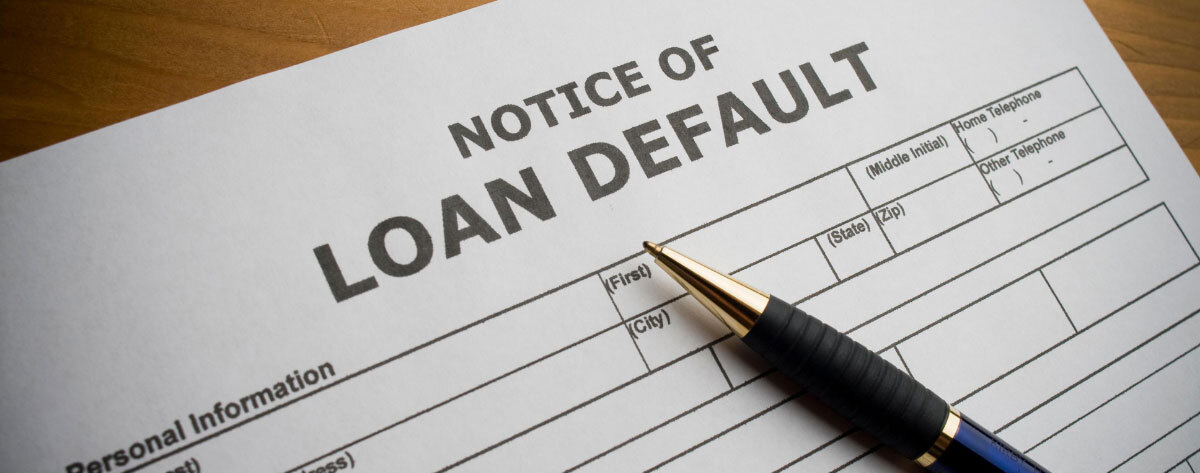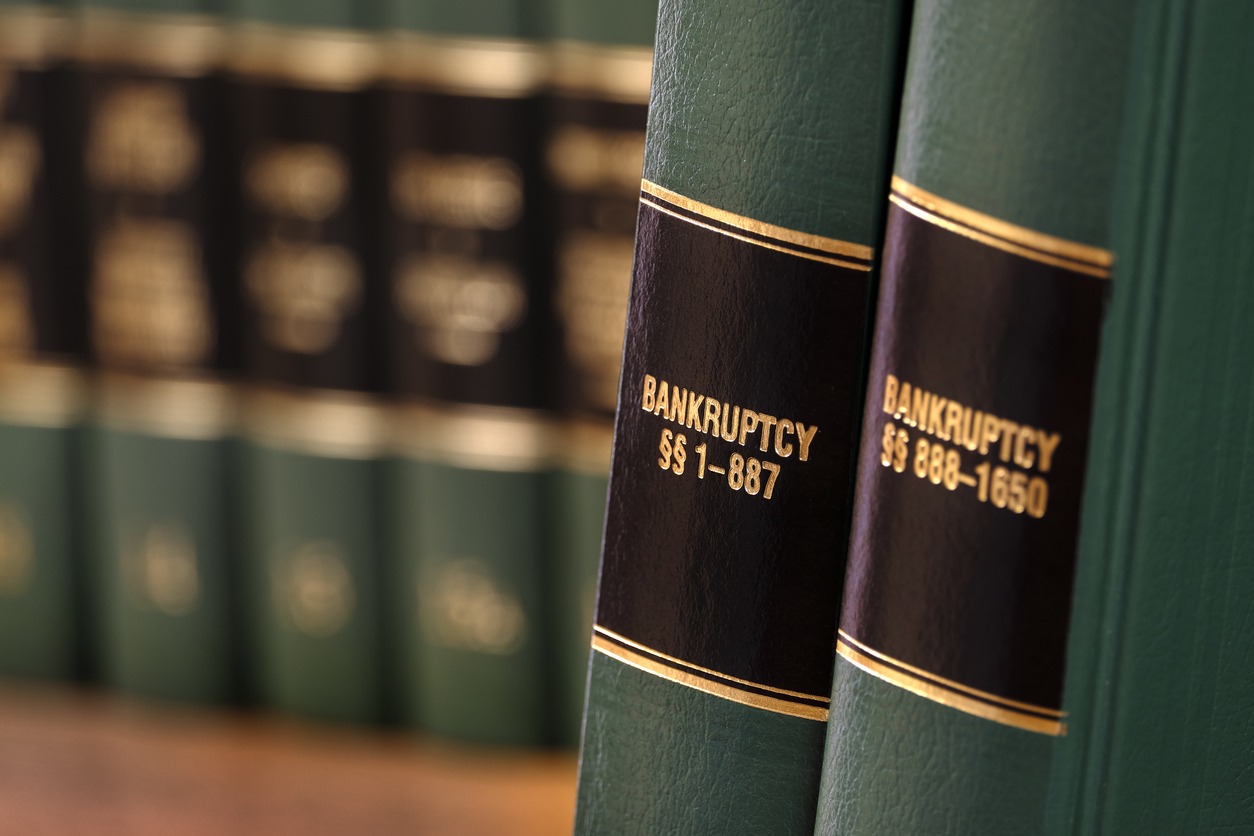If timely repayment is not an issue, why does maintaining a credit score matter? UAE law takes loan defaults very seriously. Borrowers are legally obligated to repay their debts, and the law provides lenders with several means to recover loans. Navigating the financial terrain of the UAE can be daunting, especially when debt comes into play. In the UAE, the consequences of not repaying a loan can range from financial penalties to legal actions, impacting one’s economic and social standing. If you have ever wondered, “Can I go to jail for having a debt in Dubai?” then this blog is for you. Learn about the repercussions and guidance tips for managing bank defaulters in UAE responsibly. While there’s a shift towards penalties rather than jail time, caution is still primary! Stay informed and make wise decisions in this ever-evolving landscape.
What Happens If You Default On A Loan In UAE?
UAE debt consequences have remained one of the hot topics among search engines. It is always advisable to stay updated with the latest laws and regulations the government outlines. Unlike many other countries, failing to repay a loan can result in criminal charges in the UAE. These charges can include jail time, fines, or both. Loan default occurs when a borrower fails to meet the legal obligations of the loan agreement.
This can have serious consequences in the UAE, affecting the borrower’s financial health and legal standing. Recently, the UAE has reformed its financial laws, including decriminalising bounced cheques under certain conditions. The main aim is to make the financial system more lenient and supportive of individuals facing financial difficulties. The law was introduced to help individuals restructure their debts and provide a path to financial recovery without facing criminal prosecution.
With the introduction of new rules, the authorities can:
- Impose a travel ban on individuals with outstanding debts, preventing them from leaving the country until the debt is settled.
- Banks can request to freeze the debtor’s bank accounts and other financial assets until the debt is resolved.
The UAE’s approach to debt impacts both expatriates and nationals, influencing expatriate decisions to reside and work in the UAE.
Consequences of Against Loan Defaulters in UAE

Defaulting on a loan in the United Arab Emirates (UAE) carries significant financial, legal, and social repercussions. Borrowers facing difficulties repaying their debts must understand the potential consequences to mitigate risks and navigate the complexities of financial obligations in the UAE effectively. Let’s dive into the detailed implications of bank defaulters in UAE below.
-
Financial Penalties
Financial penalties for bank defaulters in UAE can extend beyond simple late payment fees. These penalties are often calculated as a percentage of the overdue amount and can vary depending on the lender’s policies and the type of loan. For example, credit cards might incur higher penalty rates compared to personal loans due to their unsecured nature.
-
Late Payment Fees
Late payment fees in the UAE are basically the specific charges applied when a borrower misses a loan repayment deadline. Unlike broader financial penalties that might include increased interest rates or other charges, late payment fees are fixed amounts charged for each missed or late payment. To understand it better, let’s take an example: A late mortgage or personal loan payment might incur a fee ranging from AED 50 to AED 250 per missed payment, depending on the bank and the loan agreement. Similarly, for credit cards, late payment fees can be around AED 230 to AED 300, which are imposed every time the minimum payment is not met by the due date.
-
Reduced Credit Score
Defaults negatively affect your credit score and stand as a hurdle for future loan applications. Likewise, a bank defaulters in UAE negatively impacts the borrower’s credit score, which is one of the major critical measures of creditworthiness used by banks and financial institutions. A lower credit score restricts access to future loans, credit cards, and even certain services, making financial recovery harder for bank defaulters in UAE.
-
Collection Agency Involvement
Lenders may hire collection agencies to recover unpaid loans in the UAE, adding stress and potential additional costs.
-
-
Travel Ban
-
The UAE authorities can impose travel bans on individuals who default on loans. Hence, they are restricted from leaving the country until their financial obligations are settled. This measure ensures that borrowers cannot evade their debts by moving abroad.
-
-
Legal Actions
-
Federal Decree-Law No. 50/2022 (Commercial Transactions Law) and Federal Decree-Law No. 42/2022 (Civil Procedure Law) are the two major laws regulating UAE bank’s functions. Let’s understand what legal actions are outlined in these laws:
-
-
- Commercial Transaction Law: This law is an update or replacement for the UAE’s previous Commercial Transactions Law, aiming to modernise and adapt the legal framework to current economic and commercial practices. Key areas often covered by such legislation include
- Regulations around the use of cheques, including the issuance, endorsement, and handling of bounced or dishonoured cheques.
- Standards and norms govern various commercial contracts, trade operations, and related transactions.
- Rules pertaining to banking operations, loans, credits, and financial instruments.
- Procedures and frameworks for dealing with bankruptcy and insolvency cases among traders and companies.
- Regulations to address the use of electronic transactions and signatures in commercial activities.
- Civil Procedure Law: This law revises the procedures for civil litigation in the UAE, aiming to streamline legal processes, enhance the efficiency of the judiciary system, and improve access to justice. Key aspects often included in such a law are:
- Detailed processes for filing civil cases, including claim submissions, notifications, hearings, and evidence presentation.
- Encouragement and regulation of alternative dispute resolution mechanisms such as arbitration and mediation.
- Rules determining the jurisdiction of courts over various types of civil disputes.
- Provisions for electronic filing of cases, virtual hearings, and digital tools in the litigation process.
-
Civil Lawsuit
-
Lenders can file lawsuits to recover unpaid loans in the UAE, which can lead to potential asset capture or wage cutouts. They may initiate civil lawsuits against bank defaulters in UAE to recover the owed amounts. Therefore, a portion of the borrower’s income is directed towards a debt repayment plan. To give you an idea, suppose a civil lawsuit results in the court ordering the seizure of assets or garnishing wages to satisfy the debt.
In such a case, the court may order up to 25% of a borrower’s monthly salary towards repayment. Similarly, the legal costs of civil lawsuits can significantly add to the borrower’s financial burden. Legal fees, court costs, and other related expenses can amount to thousands of dirhams, depending on the complexity of the case.
-
-
Criminal Charge
-
If a cheque issued for loan repayment bounces due to insufficient funds, the borrower can face criminal charges in the UAE. This scenario can lead to imprisonment or significant fines, underscoring the severe legal consequences of failing to repay debts. To give you an example, in the UAE, issuing a cheque without sufficient funds can lead to criminal charges. The penalties for bounced cheques with values between AED 50,000 and 5,00,000 include fines ranging from AED 10,000 to AED 20,000 or more and potential imprisonment.
Please note: Borrowers have the opportunity to settle the matter out of court by arranging payment with the lender. However, failure to resolve the issue can lead to arrest and legal proceedings.
-
Social and Personal Stigma
Defaulting on loans can lead to harassment from debt collectors and damage to your personal reputation. Bank defaulters in UAE often face social and personal stigma. The shame and stress associated with being unable to fulfil financial commitments can have profound effects on an individual’s personal life and mental health.
-
-
Debt Collection Calls
-
Borrowers who default on their loans are subject to persistent debt collection calls. Lenders’ efforts to recover their funds can be distressing and invasive, adding to the defaulters’ stress and anxiety.
-
-
Damage to Reputation
-
Last but not least, defaulting on a loan can severely damage an individual’s reputation. This includes not only the financial institutions but also the community and professional networks. This reputational damage can have long-lasting effects, hindering personal and professional opportunities.
Responsibility for Unsettled Loans in the UAE

Whether an individual or a group, anyone can need a loan at a certain point in life to acquire their desires. But there’s always a possibility that things may not go as planned. However, the person who claimed the amount is liable for it. But the question is, what will happen if you are not able to pay back the loan in the UAE? Can you go to jail for not paying the loan? Are the country’s lending rules and regulations pertinent for helping you with the loan? Well, the answer would have been yes if it had been highlighted in the past.
But now the circumstances have changed. The government has imposed new lending laws per the landmark judgement by the Court of Cassation. In simple terms, the risk of getting behind bars in case of missed pending payments is removed. Furthermore, no behind-the-bar penalties will be imposed on the guarantees if the borrower fails to repay the loan (terms and conditions applied). However, it is possible that a criminal code can be charged if the case suspects any smuggled or hidden transactions.
The consequences are similar if the installments are stopped completely and the lender has valid proof of the borrower’s hidden position to recover the money. In such circumstances, the court is bound to conduct a proper investigation to ensure the borrower’s eligibility to repay the amount.
Constitutes of Inability To Pay Legally In UAE

The legal inability to pay is recognised in the UAE under certain conditions, such as personal insolvency law. According to the court’s latest verdict, if you can’t pay back a loan, it’s automatically assumed that you’re bankrupt or unable to repay unless the lenders can prove otherwise. The borrower needs to prove, with all the necessary documents satisfying the lender, that he can repay the loan. If the court discovers that debtors have hidden or illegally moved their assets, their claim of being unable to repay the loan is rejected, and they’ll have to deal with legal consequences.
Consequences of Defaulting on a Loan Under New Regulations
Recent amendments have aimed to decriminalise financial defaults under certain conditions, focusing more on financial restructuring and less on punitive measures. However, serious cases can still lead to legal action. According to the new rules in the UAE, if someone doesn’t pay back a loan, they could face punishment. Creditors can bring the case to court, where jail time might be a possibility. However, the court will examine the debtor’s financial situation to decide the appropriate punishment. Generally, if it’s not proven that the debtor is intentionally avoiding payment, they won’t be sent to jail automatically for not paying back the loan.
Responsible Management of Loan Defaults
Below, we have highlighted some key practices to manage your borrowing:
- Open Communication: Engage with lenders to discuss potential adjustments to your repayment plan.
- Debt Repayment Plan: Consider restructuring your debt to manage repayments more effectively.
- Seek Financial Advice: Consulting with financial advisors can offer strategies to manage debt.
- Consider Debt Consolidation: Consolidating multiple debts into one loan can lower monthly payments and interest rates.
- Prioritise Essential Expenses: Adjust your budget to ensure critical expenses are covered first.
Borrower Rights and Legal Safeguards in UAE

It’s crucial to know your rights when it comes to debt collectors. Let’s understand some legal protection schemes that you should know about before applying:
- Early Settlement Discount: Some lenders offer discounts for early loan repayment.
- Moratorium on Payments: In specific cases, borrowers can request a temporary halt on repayments.
- Personal Insolvency Law: This law provides a legal framework for individuals to restructure their debts in financial distress.
Preventing Loan Default: Proactive Strategies
Here are some quick tips from our side:
- Assess Your Affordability: Only borrow what you can realistically repay.
- A well-planned budget daily keeps financial toxicity away: Budgeting your financial plan will help you outline your expenses and income, preventing overspending.
- Always have a Backup: Preparing for a financial setback is always recommended. Building an emergency fund can ensure safety in challenging times.
- Compare Loan Offers: Look for loans with the best terms and lowest interest rates.
- Read Loan Agreements Thoroughly: Understand all terms and conditions before signing.
- Maintain a Budget: Regularly review and adjust your budget to manage expenses and savings.
- Financial literacy is important. Educating yourself about personal finance and budgeting enhances financial literacy. Moreover, seeking help from a professional advisor can also help you devise personalised strategies.
Key Takeaways
While the consequences of not repaying bank defaulters in UAE can be severe, understanding your rights and obligations, along with proactive financial management, can help you navigate the challenges of loan default. Debt collectors will try to prey on your emotions or lack of knowledge about how debt collection works. Don’t let them take advantage of you!
More Useful Article For You :
|
Know The Inheritance Law in UAE |
|
|
Find Mortgage Loan in Dubai |
|
|
Apply for Personal Loan in the UAE |
|
|
Guide To Car Loan in the UAE |
Frequently Asked Questions (FAQs)
The UAE's Personal Insolvency Law provides a legal framework for individuals facing financial difficulties to restructure their debts, aiming to support financial stability.
Defaulting on a loan can lead to legal actions, including travel bans in the UAE, financial penalties, and potential criminal charges for bounced cheques.
Communicate with your lender to discuss your financial situation. Many banks are willing to negotiate repayment terms to avoid default.
Generally, yes, if you are current with your loan repayments. However, if there's a travel ban due to unpaid loans in the UAE, you cannot leave until the issue is resolved.
The Personal Insolvency Law allows individuals facing insolvency to file for bankruptcy, providing a path to resolve financial issues without criminal charges for unpaid loans in the UAE.
Yes, issuing a bounced cheque can lead to criminal charges, although recent laws aim to limit the criminalisation of financial defaults. What is the new insolvency law in the UAE?
What happens if you don't pay a loan in Dubai?
How do I negotiate a debt repayment plan in the UAE?
Can I travel if I have loans in UAE?
Can I file for bankruptcy in UAE?
Can a bounced cheque lead to a criminal case in the UAE?




